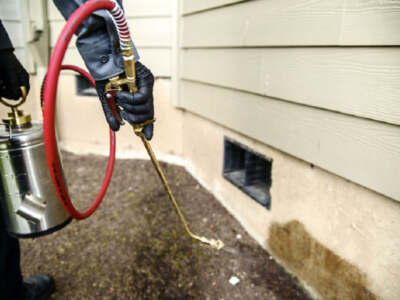Owning a condo and renting it out can be a profitable venture, providing a steady source of income and building long-term wealth.
However, becoming a successful condo rental owner requires careful planning, attention to detail, and a proactive approach to managing the property.
Condo rental owners must navigate a complex landscape of legal requirements, financial obligations, and tenant relations. Failing to consider these factors can lead to costly mistakes and legal issues that significantly impact the profitability of the rental business.
Working with experts is your best bet if you’re looking for quality condo management in Toronto or wherever you are.
In the meantime, here are a few mistakes condo owners should avoid to make their real estate business successful.
1. Ignoring Rules And Regulations
One of the critical things to remember in property management is fair housing laws. These regulations guarantee equal access to housing opportunities for all individuals, irrespective of their financial situation.
Condos have rules and regulations that govern how units can be rented out. Reading and understanding them before putting up a unit for rent is essential. Failure to comply with these rules can result in fines and legal troubles.
For example, some condos restrict the number of people who can live in a unit or limit tenants’ use of common areas. Violating these rules can result in legal action from the condo association and even lead to tenant eviction.
2. Neglecting Regular Maintenance
Living in a condo offers access to amenities that may not be accessible otherwise. It’s also beneficial to reside in a space with regular upkeep.
Naturally, occupants may become dissatisfied if both benefits become unavailable or poorly maintained.
Conducting periodic maintenance checks of communal areas and promptly addressing any damage is crucial to keep residents content. Neglecting this responsibility may lead to increased tenant turnover and unfavorable opinions about the property.
Regular maintenance is essential for keeping a condo unit in good condition and preventing costly repairs. Neglecting it can result in problems such as leaky pipes, malfunctioning appliances, or mold growth. These issues can not only be expensive to fix but also decrease the property value of the condo.
Routine inspections are easy if you allocate adequate funds at the beginning of each year and collaborate with a reliable maintenance firm.
3. Failing To Communicate With Tenants
Effective communication with tenants is critical to maintaining a positive landlord-tenant relationship.
Tenants recognize that they are in a collaborative relationship with their landlord. They expect to receive updates on crucial matters such as maintenance, upcoming events, and due payments.
Thankfully, these communications can all be automated, provided you have suitable systems to identify one-time or recurring events.
The bottom line is condo rental owners should be responsive to their tenants’ concerns and questions and keep them informed about any changes or repairs planned for the unit. Regular communication can help prevent misunderstandings and ensure the tenant feels comfortable and respected in their living space.
4. Not Having A Written Lease Agreement
A written lease agreement is critical for condo rental owners and tenants alike. This agreement serves as a legal document that outlines the tenancy terms and protects both parties’ interests.

The lease agreement should specify the rent amount, payment due date, and lease length. Additionally, it should include any restrictions or rules that apply to the unit, such as pet policies, noise restrictions, or smoking policies.
A written lease agreement can help prevent misunderstandings and disputes between the condo rental owner and the tenant. It can also clarify and guide issues or disagreements during the tenancy. However, you need to be careful when signing a lease agreement since there are several red flags to look out for.
5. Failing To Screen Tenants
One of condo rental owners’ most significant mistakes is failing to screen their tenants properly.
Screening tenants involves checking their credit history, criminal record, and employment history. Failing to do so could expose owners to tenants with a history of not paying their rent on time, causing property damage, or engaging in criminal activities.
Proper screening can help ensure that tenants are responsible and reliable and will take care of the property they are renting.
6. Overpricing Rent
Setting the rent too high can cause extended vacancy periods, which can significantly impact the profitability of the rental business.
Owners must conduct thorough research on the local rental market to determine the fair market value for their units. Comparing similar properties in the area and analyzing their pricing can help owners determine a competitive rental rate.
In addition to research, offering incentives such as a free month’s rent or waiving the security deposit can attract potential tenants and reduce vacancy periods. These incentives can be beneficial if you’re trying to bridge a profit gap as soon as possible.
However, owners should ensure that these incentives are financially feasible and don’t negatively impact the profitability of the rental business.
Ultimately, setting a fair and competitive rental price and offering attractive incentives can help owners attract quality tenants and maintain a steady stream of rental income.
Rent Out The Smart Way
Owning a condo and renting it out is a smart way to get cash flow in today’s housing market. But avoiding the abovementioned common mistakes is essential.
By understanding the potential pitfalls of condo rental ownership and taking proactive measures to mitigate them, owners can build a rental business that provides a steady income stream and contributes to long-term wealth.










Comments